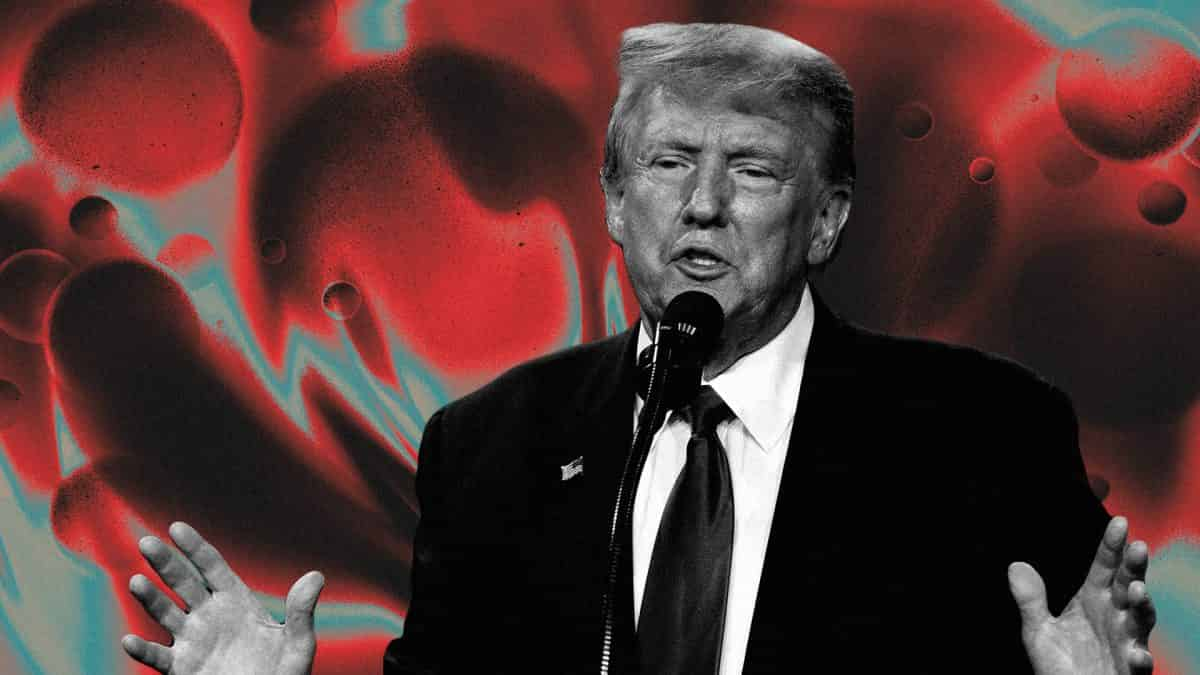JPMorgan eyes six potential crypto market changes under Trump
Quick Take JPMorgan analysts anticipate positive crypto regulatory developments under the Trump administration. However, they assign a low probability to the approval of the BITCOIN Act bill.

As crypto markets surged following the U.S. election, with bitcoin hitting an all-time high of around $93,500 this week, JPMorgan analysts outlined six key regulatory and market changes that could reshape the U.S. crypto landscape under Donald Trump's administration and his party's Republican-led Congress.
Advancement of pending crypto legislation
Several stalled crypto bills may see swift approval, according to JPMorgan analysts led by managing director Nikolaos Panigirtzoglou. These include the Financial Innovation and Technology for the 21st Century Act ( FIT21 ), which could provide much-needed regulatory clarity by defining oversight roles for the Securities and Exchange Commission and the Commodity Futures Trading Commission, the analysts said.
The Clarity for Payment Stablecoins Act of 2023, which aims to establish a framework for permitted payment stablecoins, excluding them from being classified as securities under U.S. law. Additionally, the Central Bank Digital Currency Anti-Surveillance State Act could halt U.S. CBDC development, creating more opportunities for private stablecoins to expand their role in the financial system, the analysts said.
Shift toward cooperative crypto regulation
With clearer regulatory frameworks, the SEC’s enforcement-heavy strategy could evolve into a more collaborative approach, according to the JPMorgan analysts. High-profile lawsuits against firms like Coinbase may be softened, settled or even dropped, they said.
Regulatory notices issued to companies such as Robinhood and Uniswap could also be reconsidered, reducing litigation risks for the broader crypto industry, they added.
Increased bank participation in crypto custody
The analysts expect the SEC’s Staff Accounting Bulletin No. 121 ( SAB 121 ), which restricts banks from holding digital assets, may be repealed.
Currently, SAB 121 requires custodians to record customer crypto holdings as liabilities on their balance sheets. While BNY Mellon has received an exemption, a repeal would eliminate the need for such individual approvals, paving the way for banks to engage with digital assets more freely, the analysts said.
Anticipated leadership changes at the Federal Deposit Insurance Corporation and the Office of the Comptroller of the Currency could further encourage bank participation in crypto, unlocking new growth opportunities for the industry, according to the analysts.
Momentum for spot ETFs beyond bitcoin
Although optimism is growing for spot ETFs for XRP, Solana and other crypto assets, hurdles remain, the analysts noted. The SEC may require the resolution of lawsuits concerning unregistered securities and the launch of futures-based ETFs for these assets before approving spot ETFs, the analysts said. These factors could delay new ETF approvals or necessitate re-filings, they added.
The analysts also foresee increased interest in multi-token spot ETFs, especially given the relatively low demand for spot ether ETFs compared to spot bitcoin ETFs.
Surge in crypto venture capital and MA activity
Clearer regulations could increase venture capital funding, mergers and acquisitions and initial public offerings in the crypto sector, according to the analysts.
There could also be greater collaboration with regulators on token issuance, asset tokenization and decentralized autonomous organizations, they said. Wyoming’s Decentralized Unincorporated Nonprofit Association Act was highlighted by the analysts as a model for progressive DAO legislation, granting DAOs legal entity status while preserving their decentralized nature.
Low probability of a U.S. bitcoin reserve
The analysts see a low chance of approval for the Boosting Innovation, Technology and Competitiveness through Optimized Investment Nationwide Act of 2024 ( BITCOIN Act ). The bill proposes establishing bitcoin as a U.S. strategic reserve asset, similar to gold, by acquiring up to 5% of its total supply over five years — equivalent to $90 billion in inflows at current prices — the analysts said.
While such a move would significantly legitimize bitcoin and could drive prices higher, its passage has a low probability, according to the analysts.
However, should the U.S. pursue this, other nations might follow suit, further solidifying bitcoin’s status as a reserve asset, the analysts concluded.
Disclaimer: The content of this article solely reflects the author's opinion and does not represent the platform in any capacity. This article is not intended to serve as a reference for making investment decisions.
You may also like
Warren Says Musk, Bezos May Misuse GENIUS Act for Stablecoins
Warren raises alarm as Amazon, Walmart eye stablecoins, warning GENIUS Act could let big firms issue them without strong oversight.
Ripple SEC Case Update: Appeals Delayed Until August in XRP Lawsuit
Polyhedra Links Wintermute to ZKJ Liquidity Attack
South Korea Clears Haru Invest CEO in $650M Fraud Allegations
